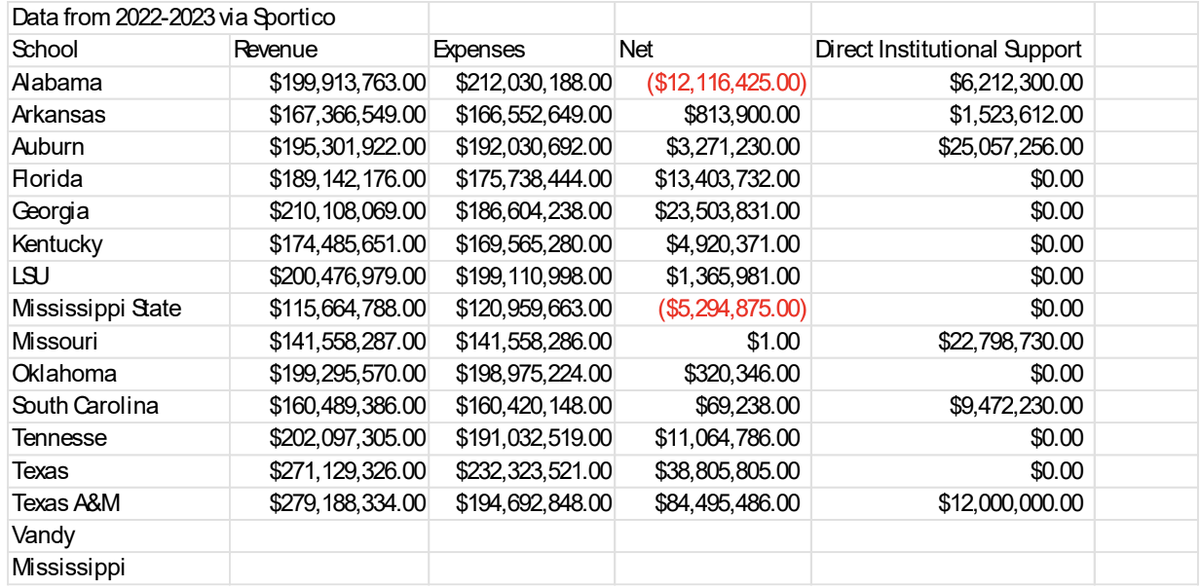NCAA settlement could reshape funding model for Mizzou Athletics
COLUMBIA, Mo. (KMIZ)
Changes could be on the way to how the University of Missouri funds its athletic department.
The university is bracing for an additional expense of up to $22 million to cover the cost of a $2.8 billion class action lawsuit against the NCAA, which alleges that Power Five conferences' policies unlawfully prevented college athletes from profiting from their name, image, and likeness. The conference include the Southeastern Conference, Big 10 Conference, Big 12, ACC and PAC 12.
The settlement also eliminates scholarship limits, which allow athletic departments to pour millions of dollars into additional scholarships across sports.
“Intercollegiate athletics throughout the country is changing very rapidly. And there's a lot of variables that we don't know how things are going to happen for sure,” Peter Wilden, MU Faculty Council Fiscal Affairs Committee Chair said. “It's one of those things that may look very differently in 2 to 5 years if you just don't know what that will look like.”
If MU wants to continue to compete in the SEC financial investments must be made, Athletic Director Laird Veatch said. He said “strategic changes” are on the way.
“Now, with 'revenue sharing' on the horizon – which, of course, we will participate in at the highest levels – the reality is that the competitive stage of college athletics will be even more about resource investment to secure top-tier talent,” Veatch wrote in a statement to fans earlier this month.
Veatch also alluded to possible ticket increases for fans next season during an interview with Mike Kelly on Mizzou Athletics' website. Out of all 16 teams in the SEC conference, Missouri has the second-lowest average and ticket and donation price at $508. Vanderbilt is the only school lower at $346. Texas has the highest-average ticket and donation prices at $2,515.
These changes have already affected how some of MU's conference rivals operate. On Thursday, the University of Florida released a statement announcing that it would be retaining head football coach Billy Napier. Napier has a 15-18 record, his predecessor Dan Mullen was fired for having a 34-15 record. However, given his seven-year, $51.8 million contract, firing Napier would mean UF would be on the hook for an expensive buyout, which is not as feasible for teams who need money to recruit.
According to a study from Sportico cited by the MU Faculty Council during a Thursday afternoon meeting, Missouri is one of six schools in the SEC whose athletic department receives direct institutional support. Of those schools, Mizzou received the second most direct institutional support. The study included 14 of the conference's 16 teams, with Vanderbilt and Mississippi being the only exceptions.

“I was surprised that there were eight of the 14 that were reporting that had no subsidy from campus to their athletic department. But there were six, including us, that did have subsidies for their campus to their athletic departments,” Wilden said.
Data from Sportico cited by the MU Faculty Council shows Mizzou Athletics brought in $141,558,287 in 2023, which was second-lowest in the conference behind only Mississippi State. While MU generated the second-lowest revenue at the conference it also the second-lowest expenses at $141,558,286.
The Athletic Department finished the year with a net of $1.00 after receiving $22,798,730 in direct support from the university. It was the third-lowest net positive in the conference. However, Alabama -- which generated the most revenue in the conference -- and Mississippi State’s athletic departments finished the year in the red.
Wilden says it's too early to know how the lawsuit will affect the athletic department's funding.
“Right now there are multiple groups that are through the athletic department that are looking at options. And I don't think anything has been close to being the final decision,” Wilden explained.
Because the University of Missouri was one of only two schools that spent more than $20 million subsidizing its athletic department, members of the MU Fiscal Affairs Committee suggested a study be done to show how athletics provides an advantage to the campus.
The committee also discussed whether the athletic department should be viewed the same as other auxiliaries such as MU Health Care, KOMU News, and The Columbia Missourian, who do not receive direct subsidies.
